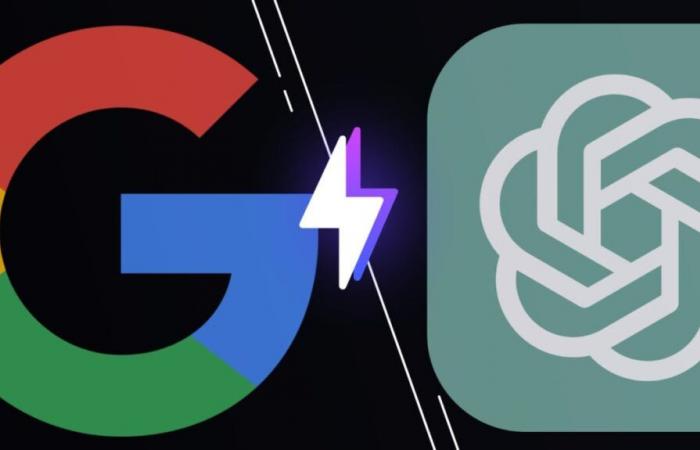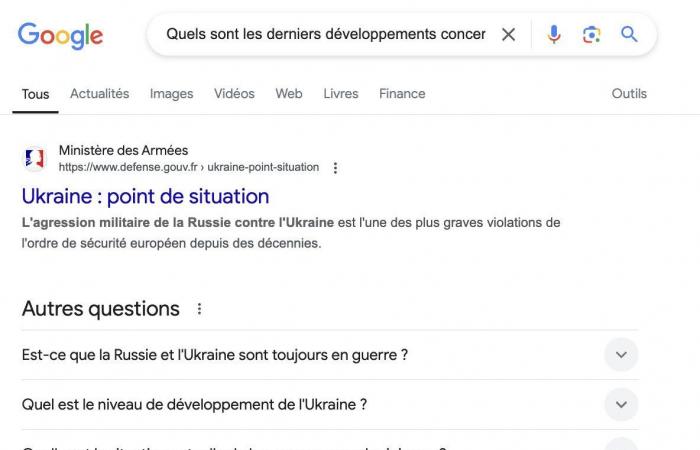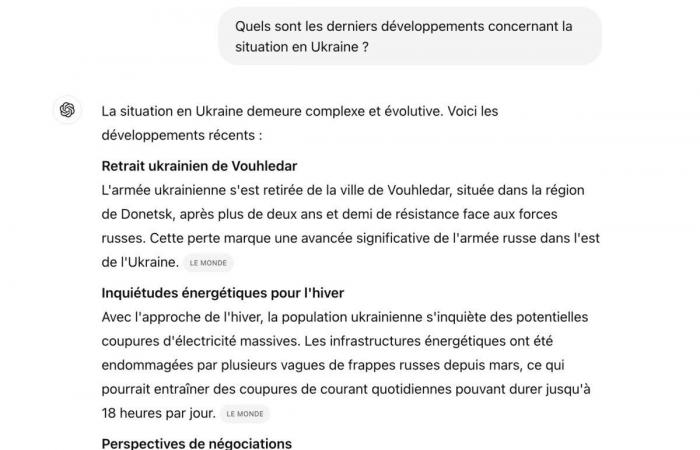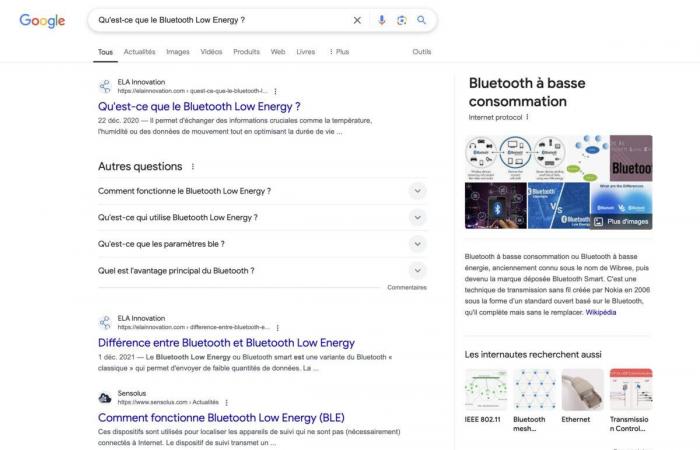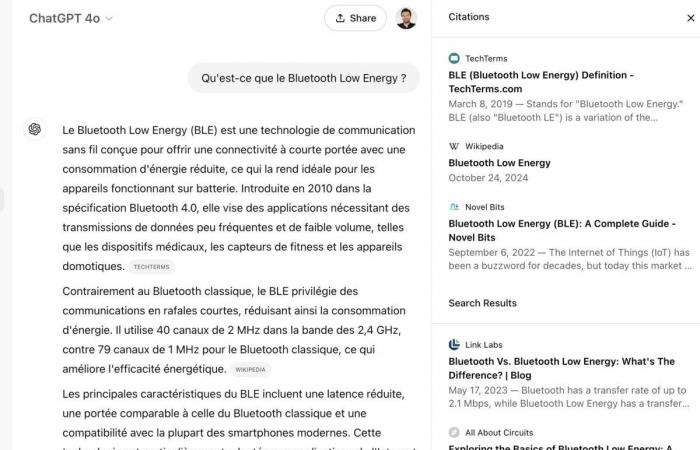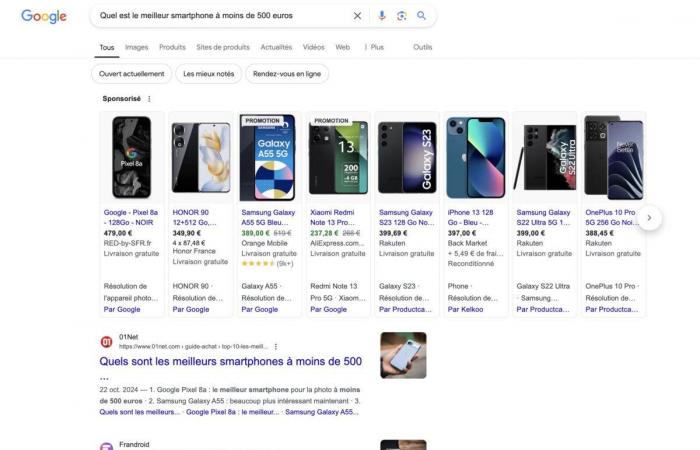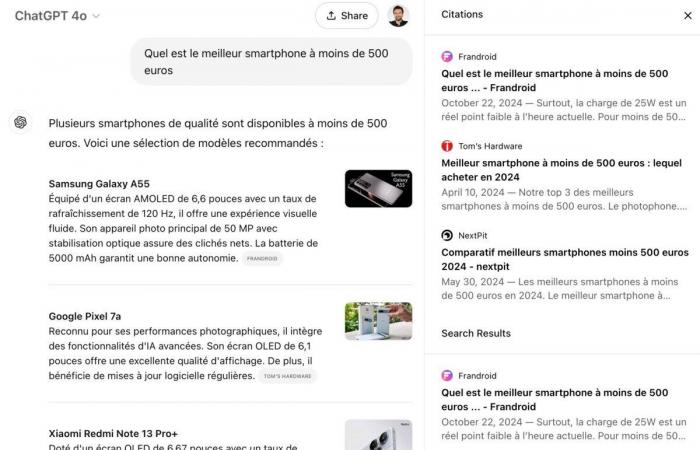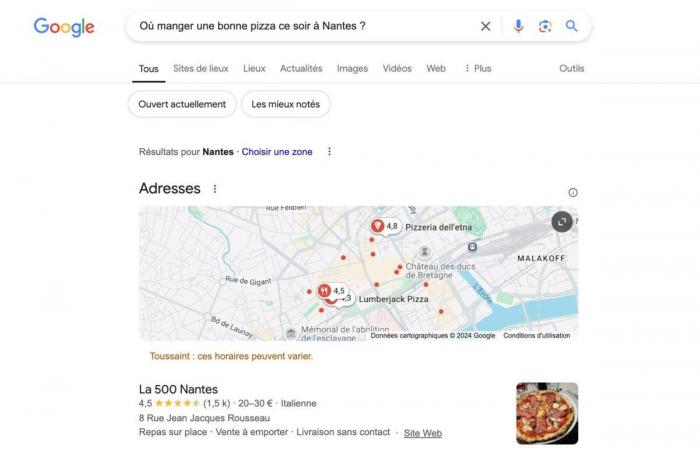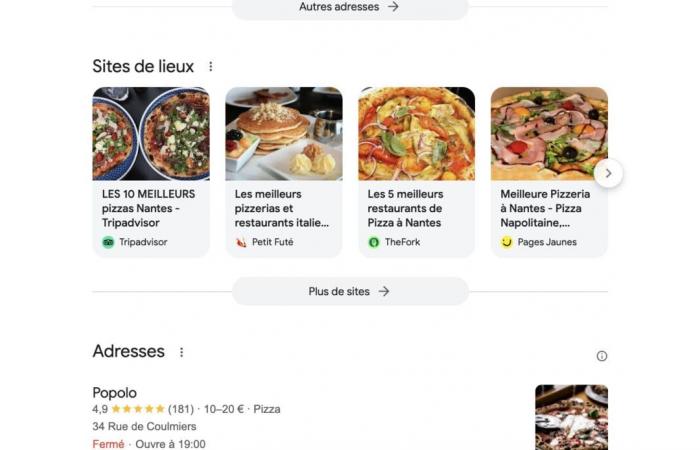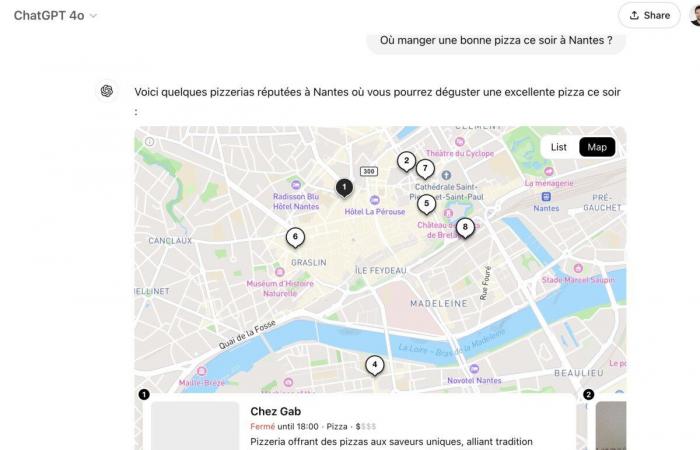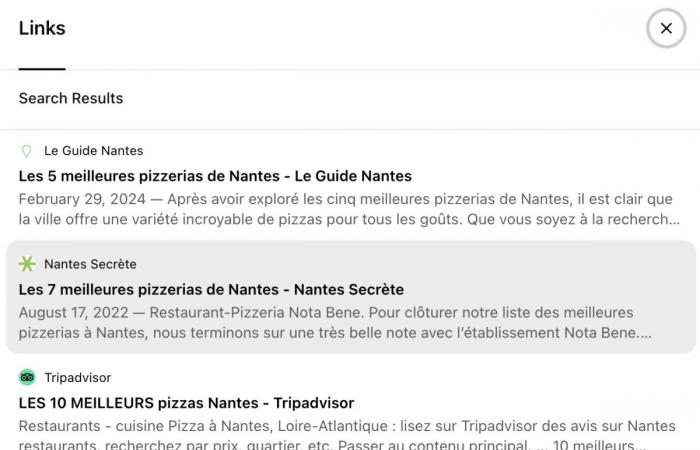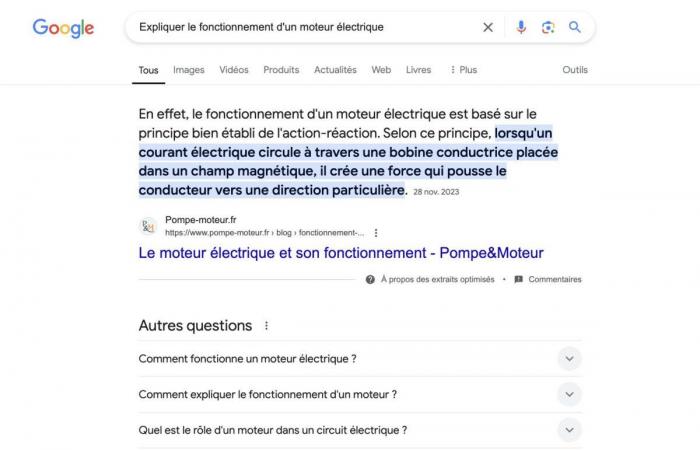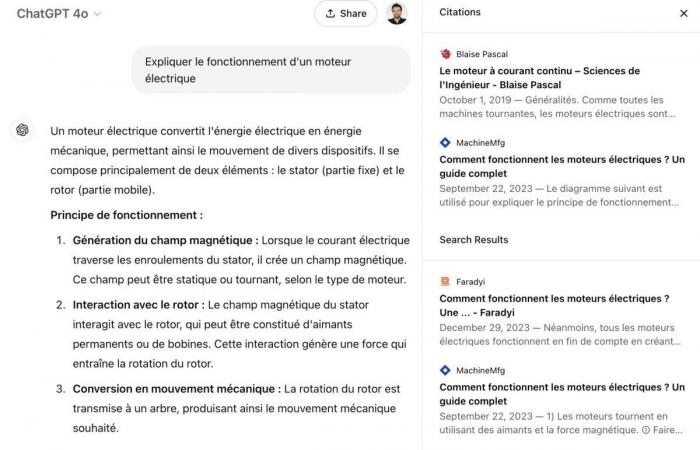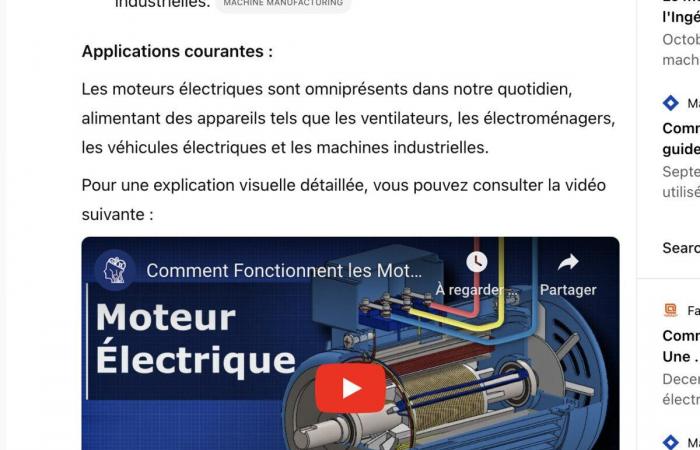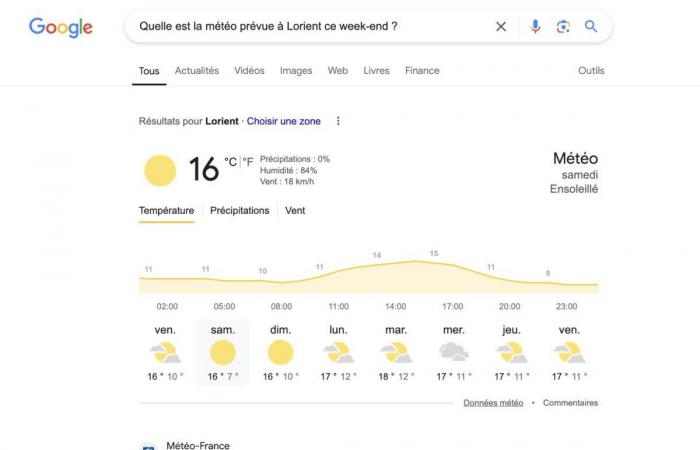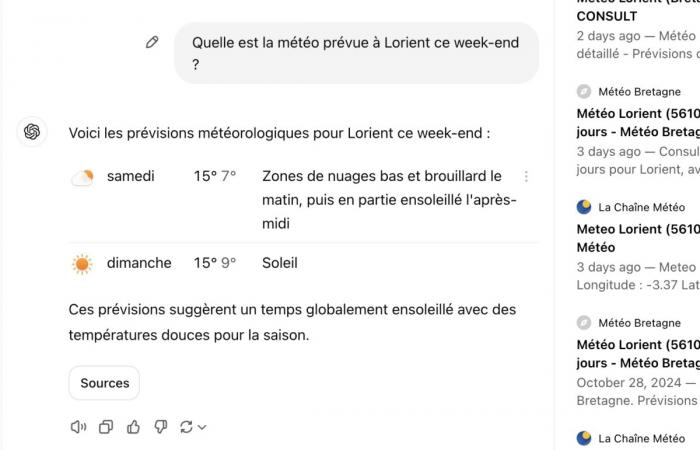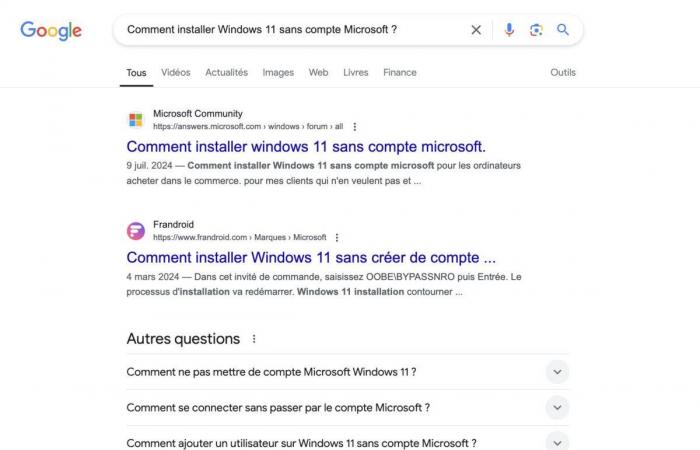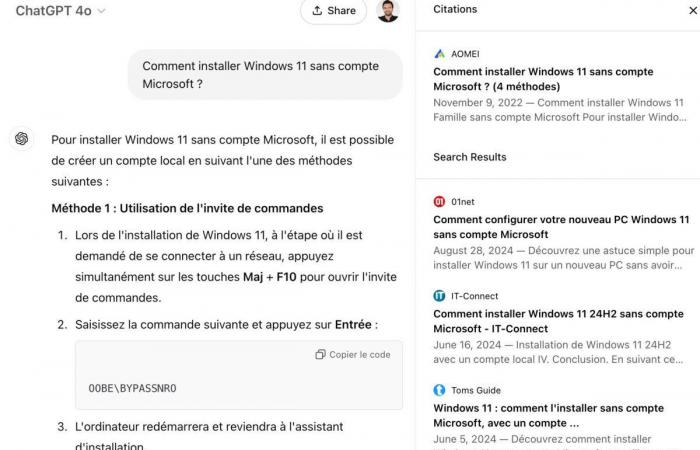The search engine wars take a new turn with the arrival of ChatGPT Search. OpenAI is launching a direct challenge to Google with a radically different approach: no more cluttered results pages, instead a conversational, ad-free experience.
This is ChatGPT Search… and we decided to put it up against Google. To concretely evaluate the performance of the two platforms, we carried out a series of practical tests in different contexts.
To go further
Here is ChatGPT Search, the new OpenAI search engine that makes Google tremble
Test 1: real-time news
Faced with the question “What are the latest developments regarding the situation in Ukraine?” ”, the two platforms showed radically different approaches.
Google plays it safe: official sources, big media, the usual package. We also end up with frequently asked questions with succinct answers.
Here, there are no sponsored articles or advertisements, which can sometimes confuse reading. For what ? No advertiser wants to be associated with these queries.

On the other hand, ChatGPT Search immediately offers a synthetic and chronological summary of events, enhanced with direct quotes from major sources of information.
This approach allows for a quick and contextualized understanding of the situation, making ChatGPT Search the most relevant choice for a quick update on current events.

However, here we only have sources linked to the media Le Monde, the only French media which has signed an agreement with OpenAI. It clearly lacks various sources, but at least it's clear and clear.
Test 2: technical research
To understand how Bluetooth Low Energy technology works,
Google does what it knows how to do: a ton of technical docs, from the official doc to specialized blogs. Heavy stuff, but you have to sort through the pile. In the middle, there is marketing content which sometimes interferes with the technical results.
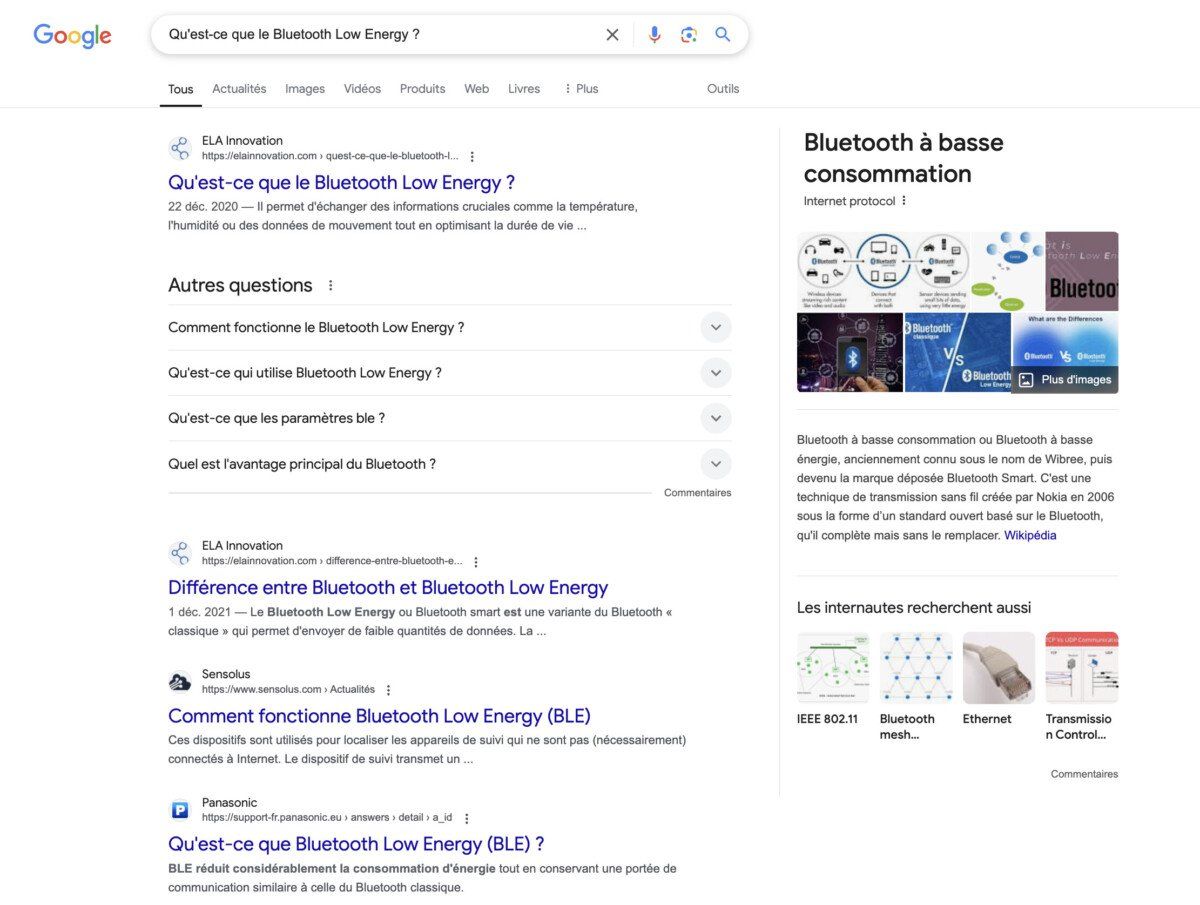
ChatGPT Search takes a progressive educational approach, breaking down the concept into understandable and illustrated elements. The ability to ask follow-up questions allows you to dig deeper into specific aspects… It's like having a patient expert explaining things to you. Really effective for understanding a complex technical concept.
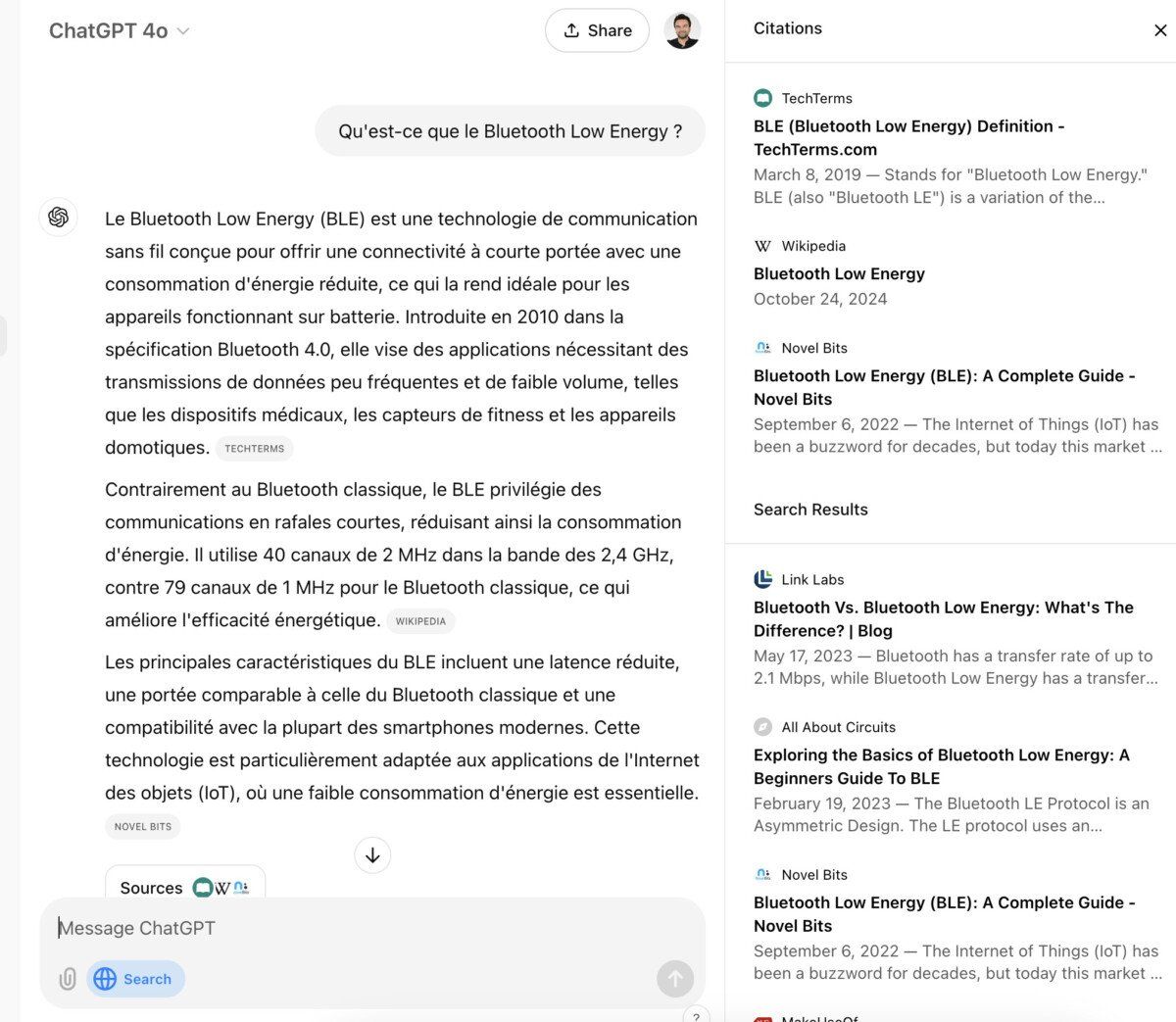
For a first approach to a technical subject, ChatGPT Search is particularly effective.
Test 3: Shopping and product comparison
In the search for the best smartphone under 500 euros, the user experience differs considerably.
Google ? Thorough marketing, sponsorship links everywhere, but you have to admit that its system is well-established: real-time prices, availability, comparisons… The machine is well oiled.
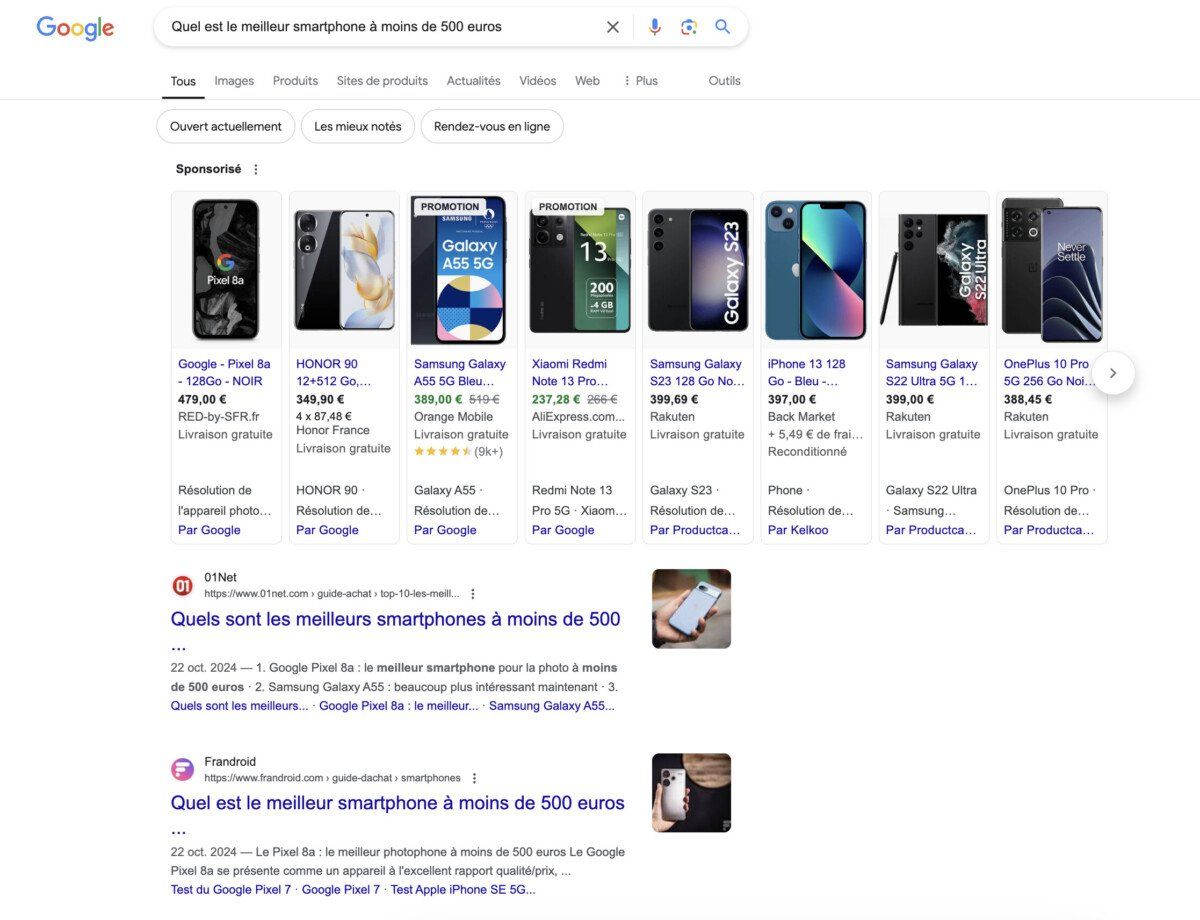
The numerous opinions and comparisons available offer a broad vision of the market, despite a marked commercial orientation.
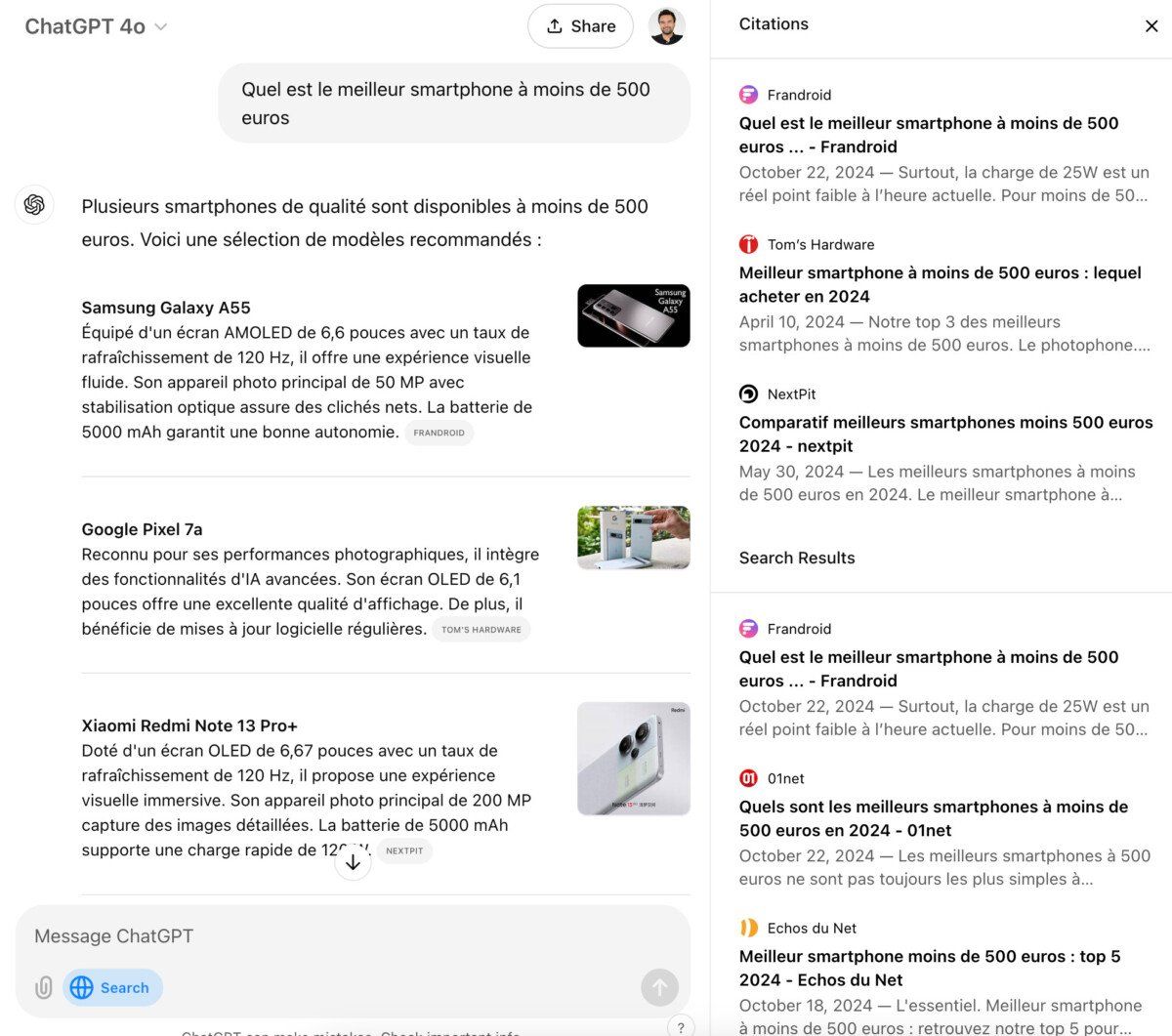
ChatGPT Search stands out for its objective analysis of the different options available. Without apparent commercial influence, it offers a methodical comparison of key characteristics and makes personalized recommendations according to the needs expressed. It is based on tech media buying guides by multiplying several sources, including Frandroid.
Test 4: Local search
The search for a good pizza restaurant in Nantes highlights the complementary strengths of the two platforms.
Google crushes the competition: interactive maps, direct reservations, timetables, everything is there. It's his comfort zone and it shows. The experience is fluid and geared toward immediate action.


ChatGPT Search brings a more personal dimension to the search, by offering recommendations adapted to the neighborhood and the context. I was surprised to find an interactive map here, it's clear and effective.

It can also summarize media rankings, without leveraging customer reviews.

Test 5 : question technique
Faced with a technical problem such as the operation of an electric motor, the two approaches show their specificities. Google provides access to a multitude of forums and technical discussions, offering varied, but sometimes contradictory, solutions. Navigating between different sources may be necessary to find the right solution.
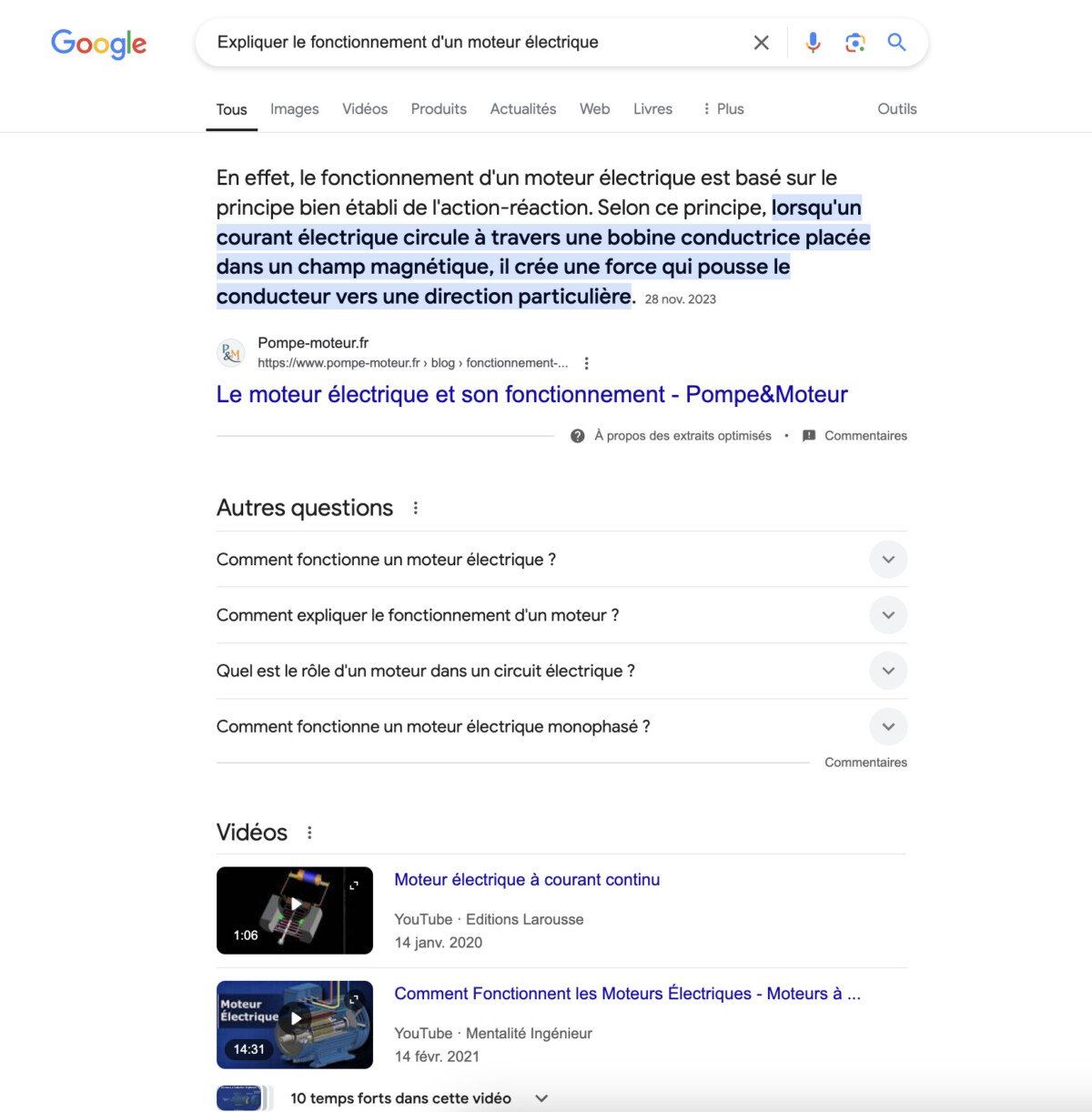
ChatGPT Search transforms the search for a solution into a real troubleshooting dialogue. Its methodical, step-by-step approach allows the diagnosis and proposed solutions to be refined based on the user's responses.

This guided interaction greatly simplifies troubleshooting technical issues.

Test 6: the weather
Finally, we simply asked them: “What is the weather expected in Lorient this weekend?” “.
Google displays its classic result: weather panel at the top of the results, raw data, temperatures, precipitation. It's precise, efficient, and we have links to the main weather sites.
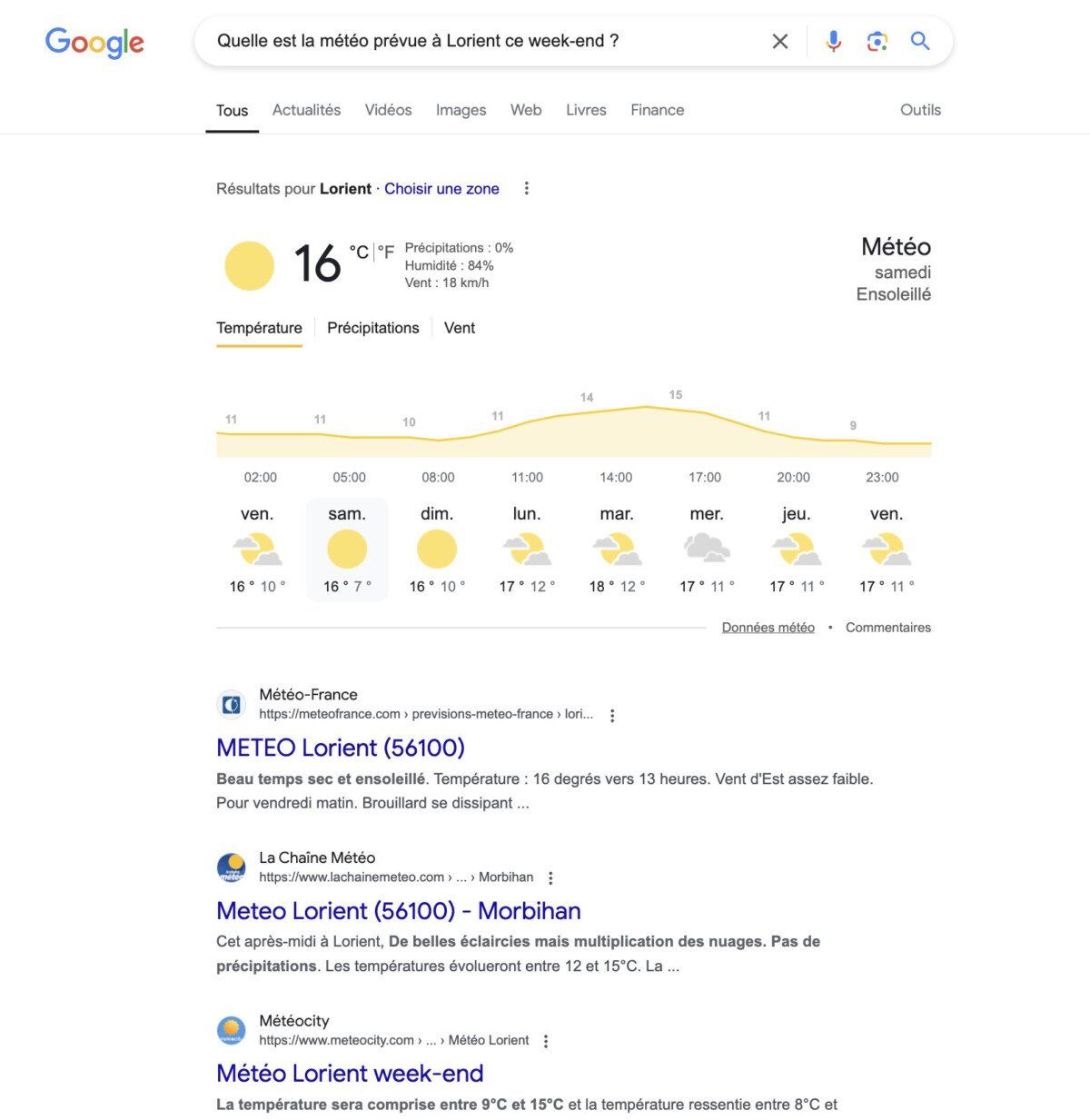
ChatGPT Search? It just displays raw data. Here, I would have expected an analysis, with forecasts and associated advice, for example on dressing… or suggestions for activities adapted to the forecast weather. The problem: it relies on older data, we see that the sites consulted are already 48 to 72 hours old… and that is problematic.
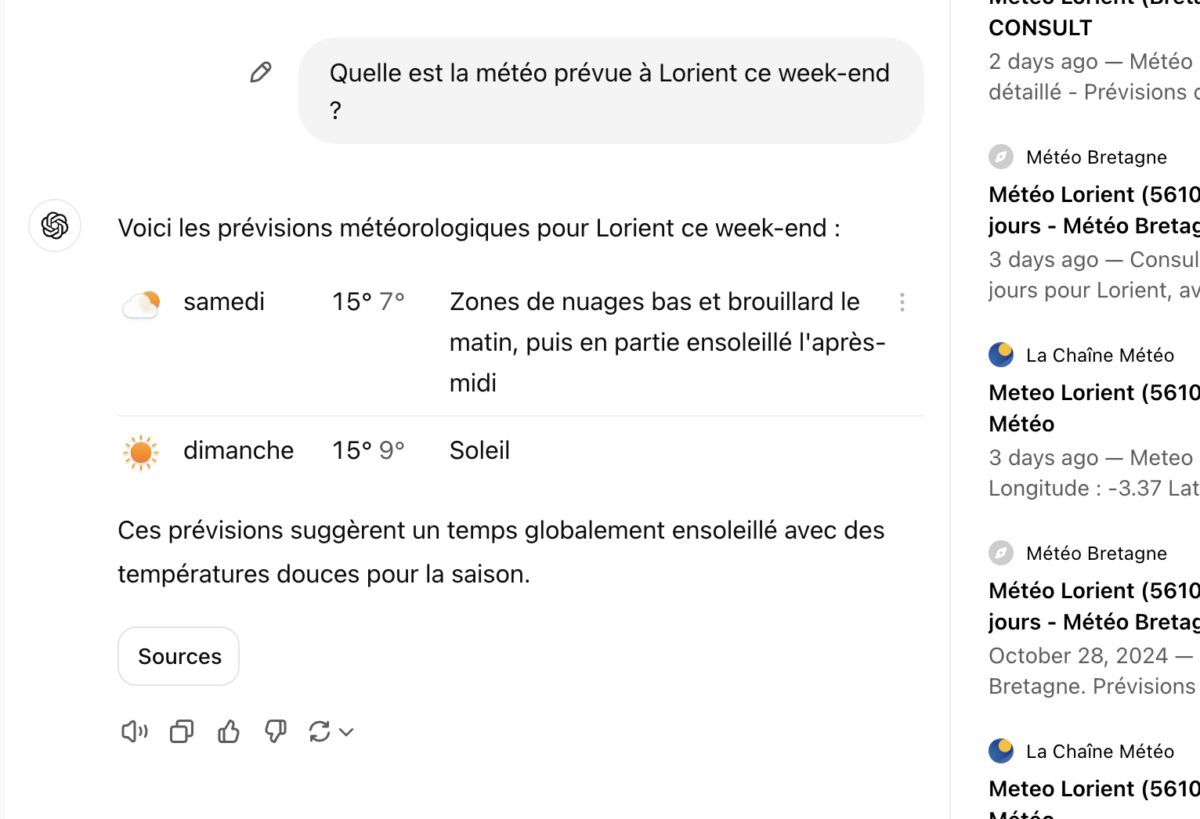
Test 7 : question technique
I threw out THE question that is always debated: “ How to install Windows 11 without a Microsoft account?« .
Google does its usual thing: a cascade of results. Media tutorials, Microsoft forums… The answer is there, somewhere, but you have to click on 2-3 links to piece together the complete puzzle. And of course, the first result is spammed by official Microsoft pages that push you… to create an account.
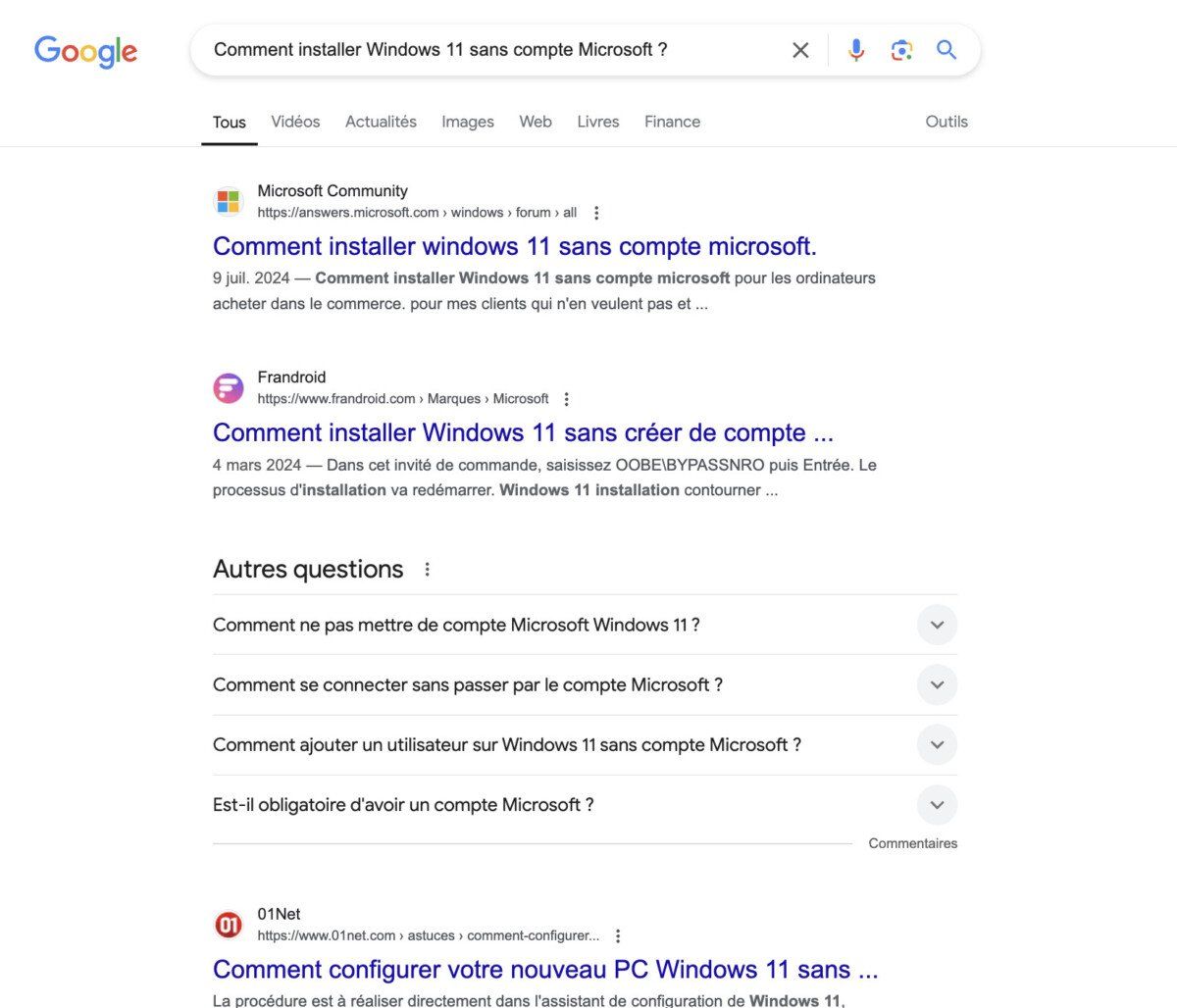
ChatGPT Search? It takes you through the entire procedure step by step. There are even three different methods, which is very practical.
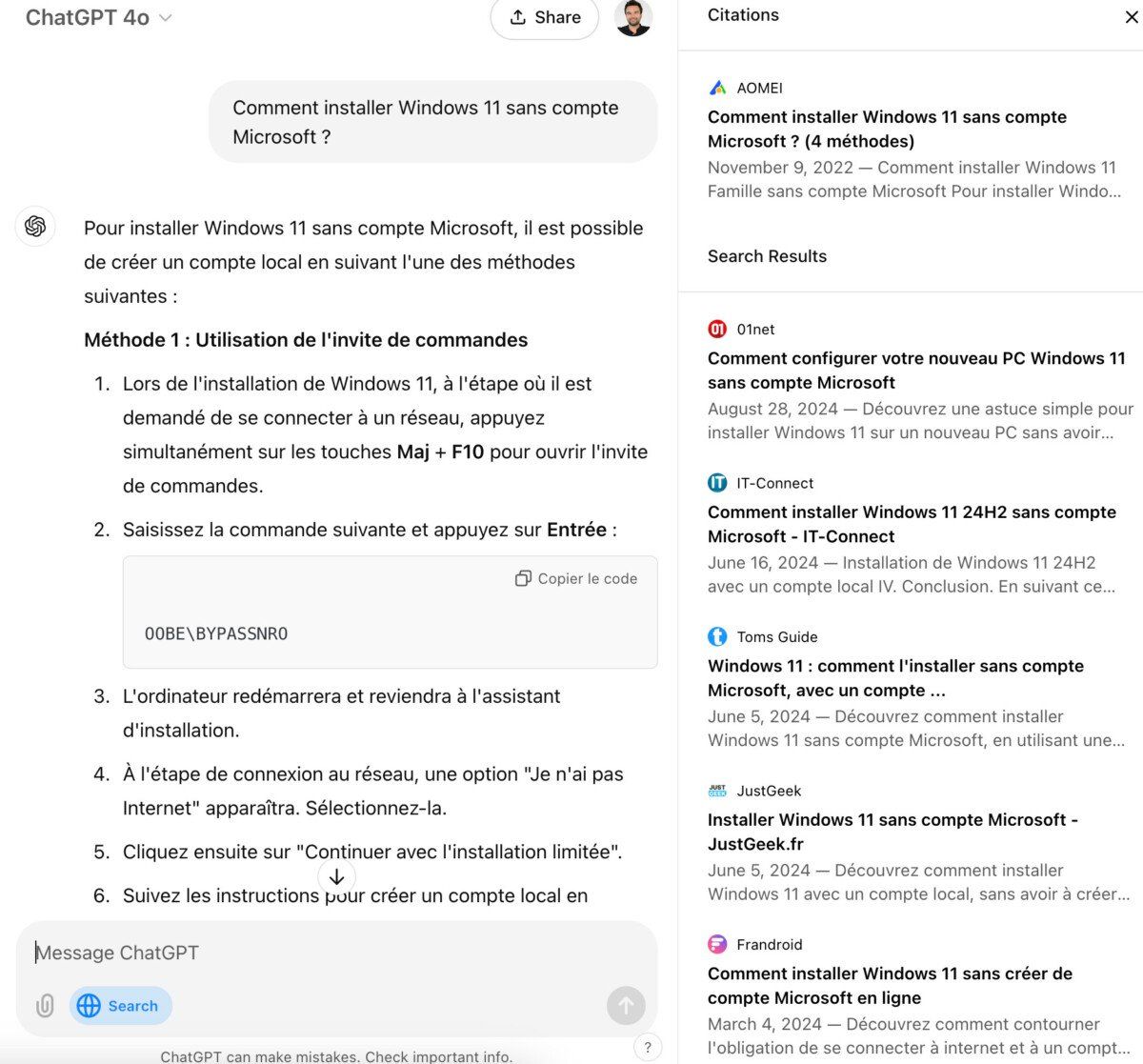
So in the end who is the best?
As you can see, these tests highlight the complementarity of the two platforms rather than a real opposition. ChatGPT Search shines with its capacity for synthesis, its interactivity and the clarity of its explanations, in an environment free of advertising.
Basically: ChatGPT Search to understand and analyze, Google to act and explore further.
For now, it's a v1 that already shows enormous potential. The real question? How OpenAI will monetize this search engine without adding advertising. Bets are on. What is appreciable is that ChatGPT Search systematically cites its sources and allows easy access to the references used via a side menu. This transparency reinforces the credibility of the responses while respecting the work of content creators (and we like that).
On the other hand, compared to Google's massive index (over 400 billion documents), ChatGPT Search relies on a smaller set of sources, mainly through Bing and direct partnerships. This limitation is seen in the results for very specific searches, certain media appear often.
As content publishers, we can legitimately worry about the impact of this new model on our traffic. If ChatGPT Search provides complete answers directly in the interface, the need to visit source sites significantly decreases.
Google maintains its supremacy in in-depth search, practical information and completeness of results. Another advantage of Google: it is very fast. 0.2 seconds for your search, while ChatGPT Search takes 2 to 3 seconds minimum.
Google has a huge local database. Shops, opening hours, live traffic, recent photos… It's light years ahead of the competition. Search for “hairdresser open now near me” — Google is a hit, ChatGPT Search is struggling.
Finally, Google indexes in near real time. Is an article coming out? A few minutes later, he is there. ChatGPT Search has a longer delay. On hot news, Google stays one step ahead.

